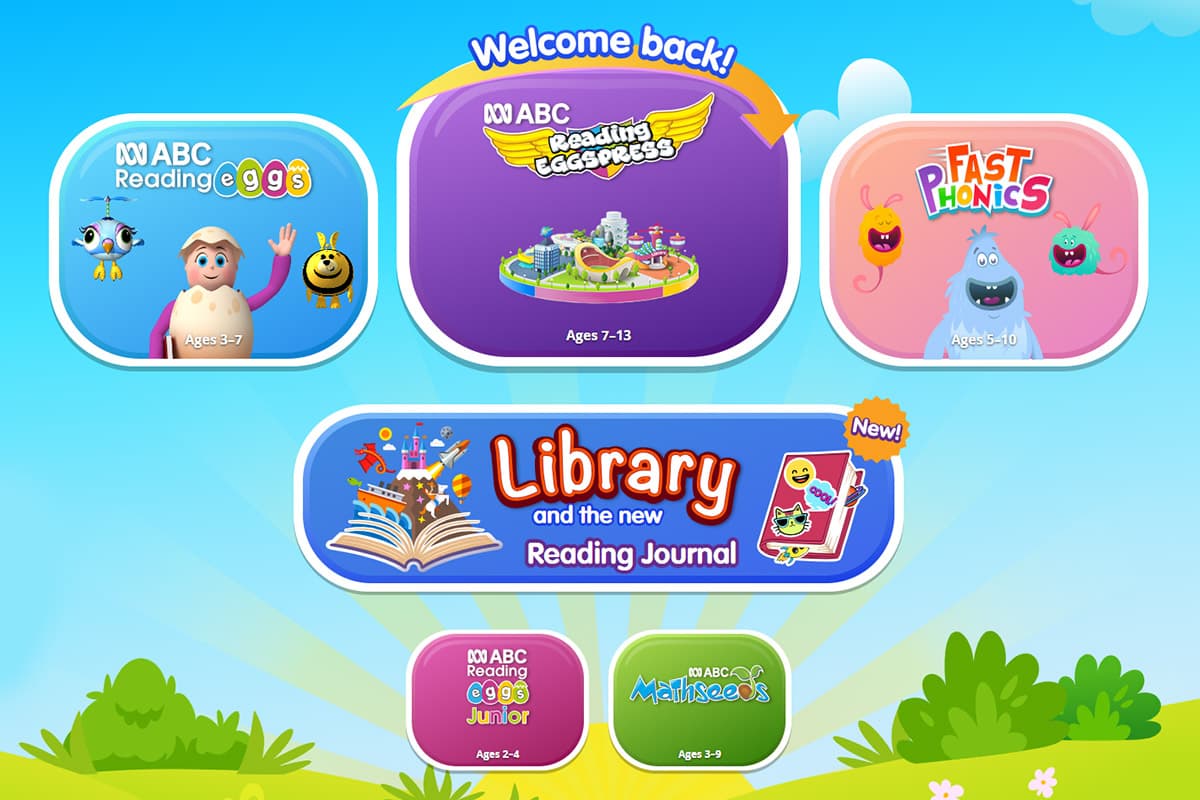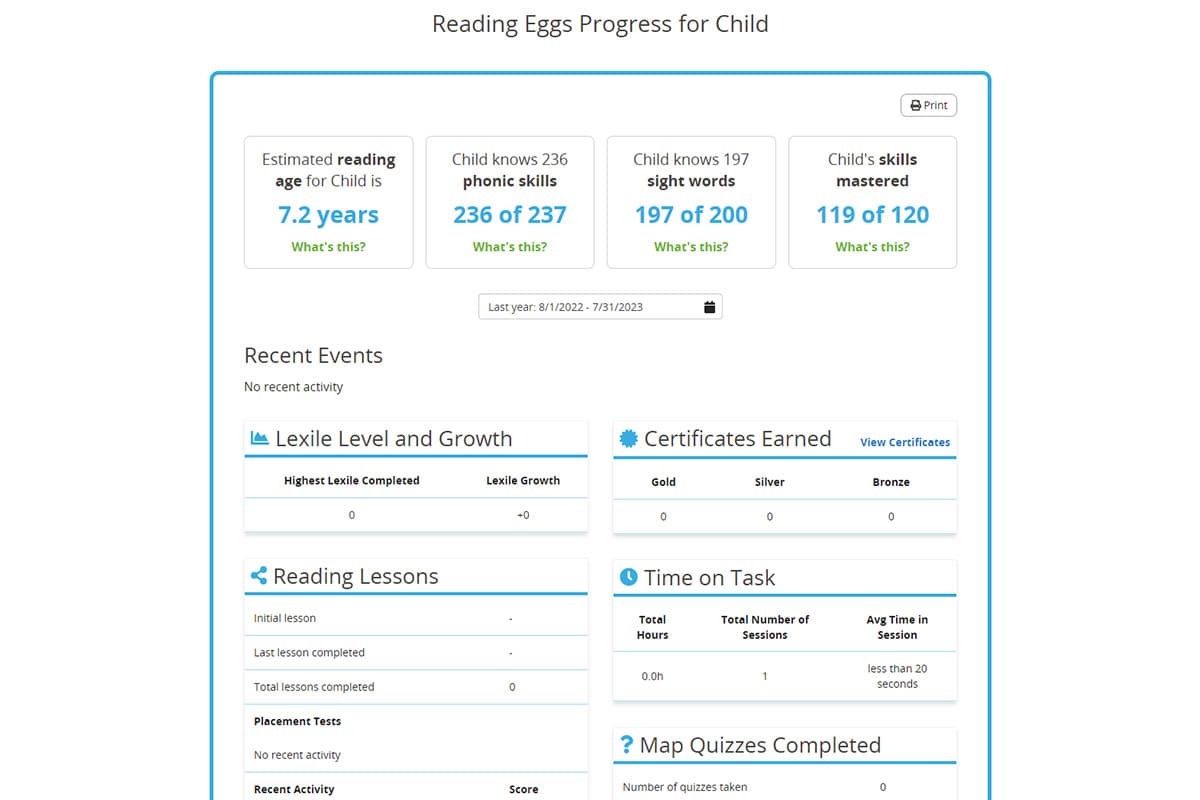


How to Choose the Best Homeschool Curriculum for Your Kids

The best homeschool curriculum meets the homeschooling needs of your family.
Homeschooling offers families the opportunity to tailor education to their children's individual learning needs and preferences. Central to making this journey as easy as possible is selecting the right curriculum. As homeschooling becomes increasingly popular, the range of curriculum options has expanded, offering families flexibility, customisation, and control over their children's education. But with this abundance of choices comes the challenge of how to choose the best homeschool curriculum for your kids.
In this article we’ll explore how to assess the options available to find the curriculum that best meets the needs of your family.
Contents
What is a Homeschool Curriculum?
What Makes a Good Homeschool Curriculum?
Factors to Consider When Choosing a Curriculum for Homeschooling
Guide to Choosing the Best Homeschool Reading and Phonics Curriculum
Why Choose Reading Eggs For Your Homeschool Reading Program?
Reviews by Other Homeschoolers
What is a Homeschool Curriculum?
When you think of a homeschool curriculum, you might automatically visualise the highly detailed (and rigid) curricula used in schools that map specific learning competencies (skills) to individual lessons. However, unlike a traditional school curriculum, a homeschool curriculum can be very flexible.
In traditional education settings (i.e. schools), a curriculum is a structured set of resources and plans designed to ensure consistency in how students are taught. Within a homeschool setting, a curriculum (also known as a homeschool program) is simply a planned course of study. As a homeschooler, you can pick and choose the resources and study approach to best suit the learning preferences of your children, your level of participation, and your budget.
As long as your child’s level of learning meets the educational standards required in your jurisdiction, you can homeschool in whatever way best fits the needs of your family.
The homeschool curricula options available vary widely in scope, approach and methodology to meet the diverse needs of homeschoolers.
There are comprehensive, pre-packaged ‘all-in-one’ curricula that enable parents to homeschool with little or no involvement. Other homeschooling parents who want to be more hands-on might opt for an eclectic approach and combine lesson plans and learning materials from different sources to create a customised curriculum.
Ultimately, the purpose of a homeschool curriculum is to provide support to homeschooling families so kids can gain the knowledge, skills, and experiences necessary to meet their academic potential and prepare them for future success.
With that in mind, let’s discuss what makes a good homeschool curriculum.
Reading Eggs makes homeschooling easy!
Start your journey to homeschooling success by signing up for a 30-day free trial to Reading Eggs, for ages 2–13. Your children will love the hundreds of interactive online lessons, fun reading and maths games, and over 3500 e-books. Plus, you’ll get access to free printable resources to guide your lesson planning and receive regular progress reports to track the progress of up to four children. Start your free trial today!
What Makes a Good Homeschool Curriculum?
A good curriculum is one that supports the way your family intends to homeschool. There are many reasons why parents choose to homeschool and many different ways to homeschool. A good curriculum fits your approach and meets the learning needs of your children. A curriculum should make your homeschooling journey easier.
Below are five common characteristics of a good homeschool curriculum:
Alignment with your homeschooling philosophy – the curriculum will align with your chosen approach to homeschooling, such as the unschooling method or a more structured, school-like approach.
Support for parents (or guardians) – the curriculum will provide enough resources and support so you can feel confident your children are learning and progressing in their education. This can include scope and sequence information about lessons; clear and explicit instructions for both you and your children; and regular reporting on your children’s progress and achievements.
Facilitates educational goals – the curriculum covers the necessary subjects and skills development (competencies) your children need to attain, while also providing opportunities for personalised learning. A good curriculum is engaging and will motivate your children to want to keep learning (making your job as a homeschooler easier!).
Adaptability and flexibility – the curriculum can be adapted to your children’s learning styles and preferences. It should also accommodate different learning paces to meet the needs of individual students.
Positive reputation – a good homeschool curriculum often receives positive reviews and recommendations from other homeschoolers. It might also be recognised and accredited by professional associations.
As you can see from the above, choosing a ‘good’ homeschool curriculum depends on your family’s personal needs and preferences. There isn’t a one-size-fits-all curriculum that will suit every homeschooler. So how do you narrow down and compare the many choices available?

A good homeschool curriculum should make your homeschooling journey easier. Free trial
Factors to Consider When Choosing a Curriculum for Homeschooling
To help you choose a homeschool curriculum from the many options available, consider the following factors:
1. What are the preferred learning styles of your children?
Understanding each child’s preferred learning style can be helpful. However, guiding your children to become ‘balanced learners’ who can learn through different styles can be very beneficial. The four main styles are:
Visual learners – they need to see information to process it
Auditory learners – are better at learning through listening
Tactile learners – like to use their hands and engage their sense of touch
Kinaesthetic learners – find it hard to sit still and learn by doing.
It’s not uncommon for children to prefer more than one style.
2. How many children will you be homeschooling?
If you’ll be homeschooling more than one child, consider a curriculum that is flexible and comprehensive enough to provide a program for all your children. Look for a program that is adaptive and will provide personalised lessons for each child’s abilities.
3. What year levels will your children be studying?
The year levels of your children are important in determining what subjects to focus on. If you have a young preschool (preK) or kindergarten child, it’s a good idea to focus on teaching them how to read before branching out into other subjects.
If your child is in high school, they might need a higher level of tuition and mentoring from you in order to complete their studies. Consider whether you'll be able to provide that assistance based on your own level of education, your time constraints and if homeschooling will meet college/university admission requirements.
4. Do any of your children have special needs or learning difficulties?
Many parents choose to homeschool their children with special needs. Children with Autism Spectrum Disorder (ASD), Dyslexia, Dysgraphia, Slow Processing Speed, Attention Deficit Disorder (ADD) and Attention Deficit Hyperactivity Disorder (ADHD) are some of the more common neurodiverse learning difficulties.
If your child has special needs, look for a curriculum that is self-paced and provides the most advantageous learning style for your child to help them overcome their challenges. For example, your child might need very explicit instructions, a highly visual learning environment and books designed for their cognitive abilities.
5. How much time do you have available for homeschooling?
Some homeschoolers love to be hands-on and plan out each child’s day with fun lesson ideas. Other homeschoolers are happy for a curriculum to take care of the lesson planning. When you first start homeschooling, it’s worthwhile to take some time to research the options available and determine what is a realistic approach to homeschooling based on your time constraints and other commitments. Check out our homeschooling tips if you’re just getting started.
6. How involved do you want to be in your children’s education?
As we’ve mentioned before, there are many different reasons why parents choose to homeschool. Some parents want to be actively involved in their children’s education; others choose homeschooling for different reasons. You might prefer to leave the homeschool curriculum and lesson planning to educational experts even though your children are learning from home, or you might want to create an eclectic, customised curriculum. The choice is yours.
7. What is your budget for homeschooling resources?
Determine your budget for purchasing homeschool curriculum resources (and extracurricular activities). This will help to guide you in your lesson planning and your choice of curriculum. A pre-packaged, ‘all-in-one’ curriculum can be expensive. If you’d prefer to use that money for fun educational activities outside your home, consider more flexible, less expensive curriculum options.
Reading Eggs makes homeschooling easy!
Start your journey to homeschooling success by signing up for a 30-day free trial to Reading Eggs, for ages 2–13. Your children will love the hundreds of interactive online lessons, fun reading and maths games, and over 3500 e-books. Plus, you’ll get access to free printable resources to guide your lesson planning and receive regular progress reports to track the progress of up to four children. Start your free trial today!
Guide to Choosing the Best Homeschool Reading and Phonics Curriculum
Reading is a foundational skill that underpins success in all academic subjects. Therefore, it’s very important to choose the best homeschool reading and phonics curriculum for your children.
Strong reading skills enable children to understand instructions and decipher learning materials across the broader general education curriculum.
Not only are the skills learned important for academic achievement, fostering a love for reading can translate into a love for learning.
Becoming a confident reader cultivates comprehension skills and critical thinking. Strong and fluent readers are free to let their imaginations soar and to explore new ideas through texts. Good readers are also often good writers who can express themselves creatively and persuasively.
The five most important factors to consider when choosing a homeschool reading and phonics curriculum are:
Are the lessons engaging and motivating?
Is the curriculum multimodal with a mix of online and offline options?
Is the program adaptive and able to provide lessons personalised to your child’s current reading level?
Is the curriculum based on contemporary science of reading research?
Will the program provide reports on your child’s reading progress and achievements?
Why Choose Reading Eggs For Your Homeschool Reading Program?
Reading Eggs is a comprehensive online reading curriculum for ages 2–13 that will fit seamlessly into your homeschool reading program.
The curriculum is carefully designed to engage children, build skills fast, and nurture a love of reading from an early age.
The reason why Reading Eggs has become a tremendous hit for homeschoolers is because it makes learning fun and enjoyable. Children love the funny characters, vibrant animations, catchy songs, and motivating golden egg rewards.
Not only is the content fun and engaging, it’s based on solid scientific research and was developed by experienced educators. The sequenced lessons and explicit instructions cover the five components of reading: phonics, phonemic awareness, vocabulary, fluency and comprehension.
The program includes multiple learning areas that focus on different skills, as well as a variety of activities and over 3500 fiction and nonfiction e-books that span a vast range of topics.

There are four individual programs within the Reading Eggs package:
Reading Eggs Junior for ages 2–4
Reading Eggs for ages 3–7
Fast Phonics for ages 5–10
Reading Eggspress for ages 7–13.
For early readers, there are activities and lessons to learn about letters and sounds, as well as comprehension and fluency lessons for more advanced readers. Each family can add up to four children with the one subscription.
Reading Eggs, Fast Phonics and Reading Eggspress provide personalised, one-on-one lessons that adapt to your child’s abilities. Children start the programs with a placement test that matches them to the appropriate level of difficulty.
Children can progress at their own pace and regular revision activities and assessments ensure they retain what they’ve learned.
Parents can access detailed reports on their children’s learning progress, including how many lessons have been completed, books read, their child’s estimated reading age, scores from assessment activities and certificates achieved.

The online programs are complemented by free printable resources for offline learning. Each online lesson has a corresponding printable worksheet available to download from the Family Dashboard. The worksheets include a summary of the learning objectives and scope and sequence information for parents.
Reading Eggs has been used to teach children how to read and to love reading for over 10 years. The program has received multiple awards and endorsements from leading homeschool associations.
Start homeschooling with Reading Eggs today!
Start your journey to homeschooling success by signing up for a 30-day free trial to Reading Eggs today. Your children will love the hundreds of interactive online lessons, fun learning games and over 3500 e-books. Plus, you’ll get access to free printable resources to guide your lesson planning and receive regular progress reports to track your children’s progress. Reading Eggs makes homeschooling easy!
Reviews by Other Homeschoolers
“My son has been using Reading Eggs for more than a year now, and he loves the reward system (golden eggs). My favorite part of the program is the initial assessment test that generated his reading age based on the results. Since I'm a homeschooling mum, I love when I can track his progress. I shared the app with another homeschooling mum, and she said after a few weeks her daughter was reading. We love this app and will continue using it.”
– Mrs Gregory
“All my children (oldest right now is 11 and youngest is 4) have used Reading Eggs and Mathseeds as their first homeschooling curriculum. It captures their attention and brings the information to them at their level. I love the follow-up worksheets that are in the bonus section of the family dashboard and the breakdown explanations for each lesson number.”
– Shelly A.
“I want to thank you for developing this app. My son is in Prep and is currently having difficulty reading. He loves the app and already got through one Fast Phonics peak today and he was making amazing progress with his reading. He also has autism (high-functioning) so learning in this way really works for him. Visual, step by step, no need to communicate, etc. As a mother (and a teacher), thank you from the bottom of my heart.”
– Kristina
“I have used this program extensively and recommended it to others. This product really works. I first bought it for five children at the same time. I had a mix of little ones, special needs and kids with gaps in learning. Since additional children are offered at a discount I just had everyone use it. It is so engaging and easy to use. The program takes care of tracking and placement. I recommend this to everyone. It's great for a beginning homeschooler. Even if you don't homeschool and your special needs child doesn't read or spell well, this really works. My typical small children used this program for 2 years before moving on. My special needs children continue to benefit from the skills and format of the program.”
– Robin S.
“Excellent resource for learning to read. My son does not like many online learning activities and this one really reeled him in—he asks to use it every day, not just school days! Head and shoulders above other resources we have used. I love the printable worksheets that reinforces what he has learned. Each printable worksheet also explains the learning areas that were addressed in each section.”
– Sara S.
“I have three homeschool children: 8, 6 and 3. They all love Reading Eggs and Mathseeds. My 6‑year‑old boy was not reading, but since he started four months ago, he is reading full sentences and full level 1 books. My 3‑year‑old was given the chance to do Reading Eggs instead of the baby site last week, and since then she has advanced 6 lessons. She is really learning! My 8‑year‑old is in Reading Eggspress , a more advanced section. She wasn't very good at grammar and phonics, but now she is doing so much better.”
– Cristina S.
“Reading Eggs has helped my stubborn child start learning letters and number recognition. She loves playing her games on the website (so mummy doesn't have to fight her to sit down for lessons!). I love the fact that there is something for kids up to 13. I think this will continue to be a great addition to our schooling. This was a smart purchase for my family.”
– T. Fitzpatrick
“We got the subscription for my 1st grader and my toddler. My 1st grader tested toward the end, [has] already finished Reading Eggs and [has] moved onto Reading Eggspress. This is the last thing she gets to do during the day and has been a huge motivator for her to get her work done. For my toddler, Reading Eggs is a little too advanced for her, so she has really enjoyed Reading Eggs Junior. It's giving her a foundation and is helping build up her confidence with letters and sounds. Love the program!”
– Amanda S.
“We got Reading Eggs for my 5‑year‑old. She loved it and by the end of the week my 11‑year‑old and 7‑year‑old had started a free account and begged me to get it for them for the rest of the year! My son (7) also loves Mathseeds! It's a great program! I think my kids have so much fun they forget it's school and just think it's a computer game! What better way to learn?! It's that great!”
– Megan C.
Start homeschooling with Reading Eggs today!
Start your journey to homeschooling success by signing up for a 30-day free trial to Reading Eggs today. Your children will love the hundreds of interactive online lessons, fun learning games and over 3500 e-books. Plus, you’ll get access to free printable resources to guide your lesson planning and receive regular progress reports to track your children’s progress. Reading Eggs makes homeschooling easy!


